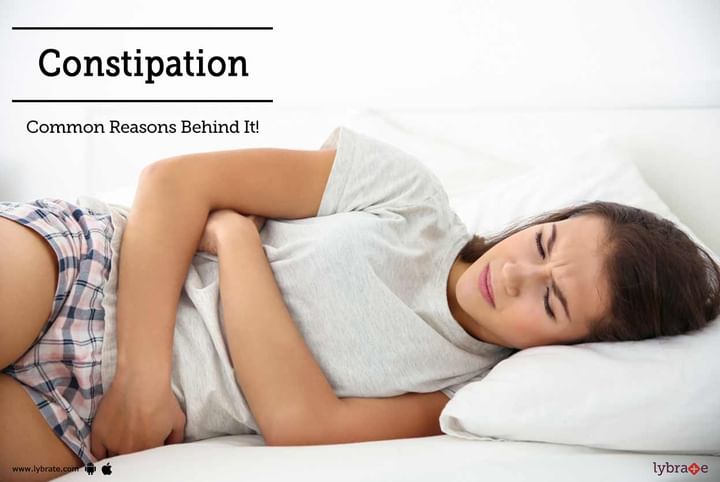Constipation - Common Reasons Behind It!
Constipation by itself is not a disease but it a condition in which your bowel movement is infrequent and the stools are hard and difficult to pass.
Constipation happens to most of us at one time or the other and then it goes away naturally. Chronic constipation is constipation which is long-term and it usually signals a deep-rooted medical problem which requires intervention.
Symptom of constipation
While fewer bowel movements is a foremost symptom of constipation, other common symptoms are-
- Trouble passing stools
- Pellet-like hard or small stools
- A sense of being full even after a bowel movement
- Flatulence, swollen belly
- Belly pain
- Throwing up
Causes
Medicines like antacids that contain calcium or aluminium
- Changes in your lifestyle and usual diet like travelling
- Having too much of dairy
- Colon cancer
- Eating disorders
- Irritable bowel syndrome or IBS
- Neurological conditions like Parkinson's disease and multiple sclerosis
- Inactive lifestyle
- Less water and fibre in diet
- Overusing laxatives
- Pregnancy
- Problems with the muscles and nerves in the digestive system
- Drugs like pain medications and narcotics, antidepressants, or iron pills
- Stress
- Hypothyroidism
What should you do?
Constipation can be handled by taking simple steps like:
- Drinking four extra glasses of water a day over your normal intake.
- Drinking warm water in the morning.
- Adding more fibre to your diet by eating more fruits and vegetables.
- Eating more bran cereal and brown rice.
- You can use a very mild over-the-counter stool softener and laxatives like magnesium hydroxide. But take care to not use them for more than two weeks at a time. If you don’t get any relief, it’s time to call your doctor.
You should not wait to consult a doctor, however, if you have sudden constipation with abdominal pain or extreme cramping and you aren’t able to pass any gas or stool.
Also, call your doctor if:
- Constipation happens out of the blue and is not a new problem for you.
- You see blood in your stool.
- You are losing weight.
- You are experiencing severe pain during bowel movements.
- Your constipation is more than two weeks old.
- You are getting pencil-thin stools.
Diagnosis
The following tests are recommended to unearth the reasons behind chronic constipation:
- Blood tests to check hormone levels
- Barium studies a kind of test which looks for blockages in your colon
- Colonoscopy which again looks for blockages in your colon
A type of constipation which is due to pelvic floor /outlet dysfunction. This may need biofeedback therapy. At times some kind of minor surgery
Prevention
Constipation really is very amenable to diet and lifestyle changes. Eat a well-balanced diet and go for light, regular exercise to prevent chronic constipation. Also, drink two quarts of water every day to keep yourself regular.
In case you have a concern or query you can always consult an expert & get answers to your questions!



+1.svg)
